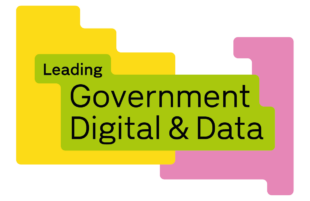My name is Jonathan and I have just joined the Civil Service Digital and Technology (DaT) Fast Stream and I want to tell you about the application process.
What you need to know
The Civil Service Fast Stream is one of the best graduate schemes in the country. The application is meant to be thorough, and you’re going to be tested in ways you’ve probably not been tested before.
I applied to the DaT scheme because I really think it's the future. I graduated in French but DaT seemed like the best option because the possibilities are practically endless. I really liked the idea of the Generalist stream but I've always liked tech - mostly as a consumer - and so being able to combine that curiosity with working in different departments seemed perfect.
The process started for me on the 1st Sept 2014 and, depending on your scheme, you may not know whether you've succeeded or not until May the following year. So my first piece of advice is: try not to stress too much.
Starting out: the recruitment process
Here’s the good news: you will be supported every step of the way. The recruitment process starts with a company called Parity, whose online portal you will quickly come to know like the back of your own hand. The first tests (including verbal and numerical) are online. They serve as a filter, only letting through those who may be suitable and which are relatively tricky. They are also fairly standard across industry so there are plenty of places to practice – so make sure you do. Once you’ve passed, there’s the full application form to get through. It’s not a light form, so put the kettle on and settle in.
There are three “extra” questions for DaT Fast Streamers – why you, why DaT, why now?
I would recommend you have a think about these. Why do you want to join the DaT scheme? Are you excited about the way technology is and will continue to, alter people's lives? Are you enthusiastic about Big Data and the way we can use data to make services smarter and more effective? And are you ready, right now, to lead on all of these things (and more)?
Don’t worry if you’re not. You’ll get specialist and leadership training as you progress. You'll also see that not everyone is fresh out of university. There are quite a few Fast Streamers who enter as in-service candidates or who work for a couple of years after uni, and there’s no age limit for the Fast Stream.
E-Tray exercise
The next step is an e-tray exercise. In essence, it’s a timed exercise to see how well you deal with making decisions in a fast-paced environment as well as your ability to prioritise and organise. Once again, these kinds of tests can be practised, and it’s really important that you do, because passing it will get you an invite to the Fast Stream Assessment Centre (FSAC). The test takes around 2 1/2 hours, so make sure you've got everything you might need before you start - plenty of water, some pens and paper for notes, and total peace and quiet.
Next is a visit to the Fast Stream Assessment Centre (FSAC). The FSAC is a full day of assessments that cover all of the competencies expected from Civil Servants.
You'll be seen by three assessors, so be prepared for a long day.
You'll be reimbursed for almost all of your travel - so don't be put off, even if you're coming a long way (I travelled to Aberdeen). Remember also that you're not being tested on your knowledge of digital or technology, just on your ability to learn, analyse, and to offer suggestions. The best piece of advice I can offer is to think through the question and try to consider problems from another perspective.
Following that, whether you pass or fail, you'll get a report - a fantastically detailed breakdown of where your strengths and weaknesses lie. It can make for slightly uncomfortable reading, but it's also going to be the greatest tool you can have for personal development. What are you good at? what are your weaknesses? It's all there and you'll need all that information for the final stage of the application process - the Final Selection Board (FSB).
Final Selection Board (FSB)
Although it's only half a day, it's even more intense than the FSAC. You'll be given time to prepare for a practical exercise, a fictional task of the sort you may be given in government. It may ask you to choose between different types of technology to improve the way we vote (I did this, it was quite fun). You're not being tested on your technical knowledge in any way, you're being assessed on how well you analyse and use the information you are given.
Finally, the practical is followed by a 45 minute interview about you, your skills, and why DaT. You don't need any technical knowledge to pass. You will need to show you are motivated by tech and digital and understand how they can be used to make government services better (everyone has had some transaction with the government and you've almost certainly used good and bad digital and technology tools. So I'm guessing you have a view?). You'll also be assessed for your potential to lead.
The process is thorough, but it's worth it. We're doing something amazing: we're making people's lives better.
Come and join us (and good luck).
The Fast Stream application window has just been extended
Apply now to join the Digital and Technology Fast Stream. Make sure you register your details by 30 November.


1 comment
Comment by Snow posted on
At last! Someone with real exrtpeise gives us the answer. Thanks!